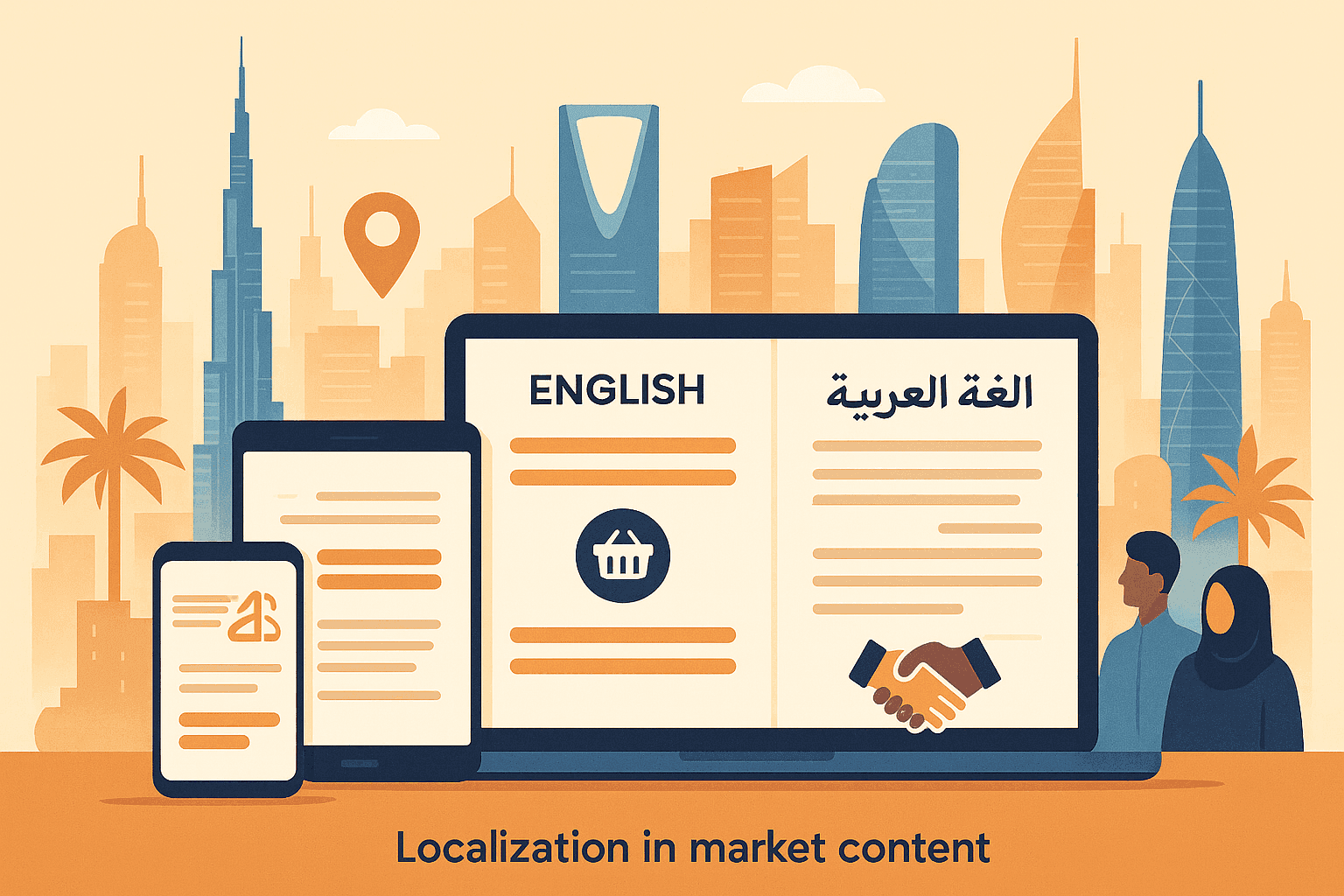
The Imperative of Localization in a Diverse Market
A Strategic Edge in the GCC

Fadwa Al Qasem
For companies aiming to thrive and establish a strong, resonant presence in the dynamic GCC market, a generic, one-size-fits-all approach to digital content is no longer merely suboptimal; it's a significant impediment.
The Gulf countries, including the United Arab Emirates, Saudi Arabia, and Qatar, represent a unique and rapidly evolving landscape, rich in cultural heritage, diverse demographics, and intricate linguistic nuances. In this vibrant and competitive environment, localization transcends simple translation; it involves a meticulous and comprehensive adaptation of digital products and services to genuinely resonate with Arabic-speaking audiences.
This intricate process takes into account not only linguistic subtleties but also deep-seated cultural sensitivities, local design preferences, and even regional legal frameworks. The ultimate goal is to ensure that the user experience feels authentically native, thereby fostering deeper engagement, building invaluable trust, and ultimately driving commercial success for companies and businesses operating in this crucial region.
Beyond Translation: The Art and Science of True Localization
At its core, localization is about making a product or service feel as though it was originally conceived and created specifically for the target market. It’s a sophisticated, multi-layered process that extends far beyond merely converting words from one language to another.
Effective localization meticulously considers a multitude of elements that collectively contribute to a truly native and immersive user experience:
• The correct use of language and idiom, ensuring that the tone, style, and even humor of communication are appropriate and well-received within the local context.
• Adapting the direction of text flow, as Arabic is read from right-to-left, which profoundly impacts user interface design, layout, and overall user interaction.
• Adapting user interfaces and underlying functionalities to meet specific local market expectations and comply with regulatory requirements. For example, a financial application launched in Saudi Arabia would need to adhere strictly to specific Islamic finance principles, which would be reflected not only in its terminology but also in its features and transactional flows. Similarly, a medical translation for a healthcare application in Abu Dhabi must comply with local health regulations and terminology, ensuring accuracy and patient safety.
• Visual elements, such as selecting appropriate imagery that resonates culturally and carefully avoiding those that might be misinterpreted, cause offense, or simply feel out of place.
If applications designed for users in bustling urban centers like Dubai or Riyadh are to truly succeed, they must not only speak Arabic, but also reflect the cultural values, aesthetic preferences, and even the daily rhythms of life in these cities.
This profound level of detail and precision requires the unparalleled expertise of professional localizers who possess a profound understanding of both the target language and culture.
Tabeer: Enabling Authentic Engagement in the GCC
Navigating the complexities of the GCC market requires a partner with deep linguistic and cultural expertise. Tabeer provides comprehensive localization services that ensure your digital products and content are meticulously adapted for the United Arab Emirates, Saudi Arabia, Qatar, and the GCC as a whole.
Our team of professional translators, linguists, and localizers possess the nuanced understanding required to transform your global content into a locally relevant and impactful experience, fostering authentic engagement and driving commercial success in this vital region.